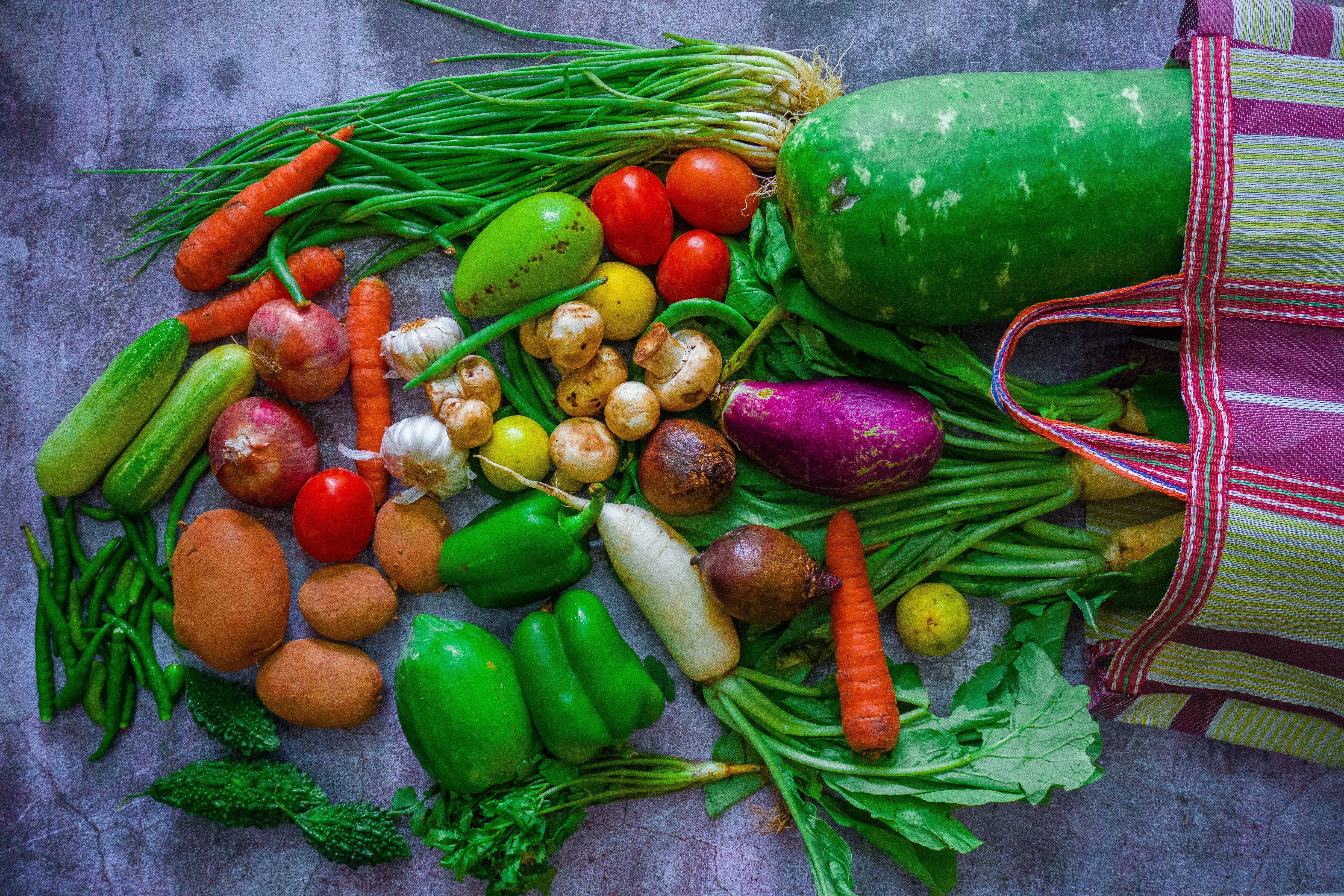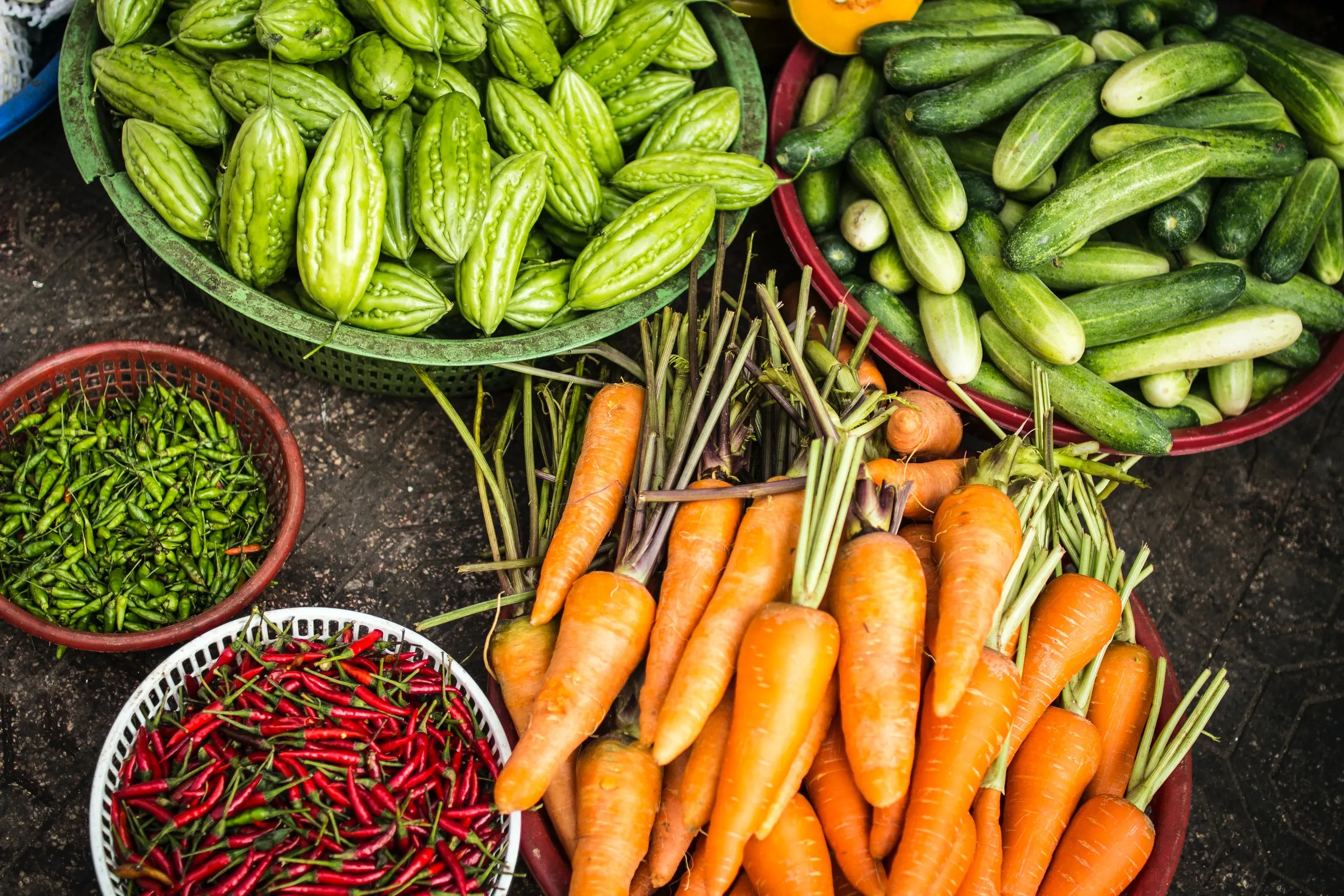Natural Sustainable Nutrition
A Gentle Path to a Healthier Planet

[Toc]
The Quest for Optimal Health
In the quest for better health and well-being, women over 45 are increasingly turning towards a more sustainable and natural approach to nutrition. By embracing key principles, women not only nourish their bodies but also contribute to the preservation of our planet and support ethical food systems.
In this post, we will explore how these principles can be seamlessly integrated into daily life and empower women to make informed and eco-conscious choices. This post does not provide any professional nutritional advice and is intended for informational purposes only.
Emphasizing Whole Foods for Optimal Health
At the core of natural sustainable nutrition lies the emphasis on whole, minimally processed foods. For women over 45, these foods provide a wealth of essential nutrients necessary for maintaining vitality and promoting overall well-being. Fruits, vegetables, whole grains, nuts, seeds, and legumes as well as organic meat and fish, offer a diverse range of vitamins, minerals, and antioxidants that can support healthy aging and ward off age-related ailments.
By choosing whole foods, women can also reduce their environmental impact. Highly processed foods often require significant energy and resources during production and transportation. Opting for whole foods not only benefits the body but also lessens the strain on our planet's resources.

Nurturing the Environment with Local and Seasonal Foods
A sustainable diet for women over 45 also involves mindful choices when it comes to food sourcing. By selecting locally grown or produced foods that are in season, women can significantly reduce their carbon footprint. Supporting local farmers and producers fosters a sense of community and contributes to the preservation of traditional agricultural practices.
Seasonal foods are inherently fresher and more nutritious, encouraging a diversified diet throughout the year. Moreover, aligning our eating habits with the rhythm of nature creates a stronger connection to the Earth and its cycles.
Embracing a Plant-Based Focus for Health and Sustainability
For women over 45, embracing a predominantly plant-based diet can have significant health benefits. Studies have shown that plant-based diets are associated with lower risks of heart disease, certain cancers, and diabetes, which can be particularly advantageous as we age.
Furthermore, reducing the consumption of animal products is an eco-friendly choice. Animal agriculture has a substantial impact on the environment, contributing to deforestation, greenhouse gas emissions, and water pollution. By choosing more plant-based meals, women over 45 can play a pivotal role in reducing these environmental burdens.

Sustainable Protein Sources for Optimal Nutrition
While adopting a plant-based focus, it's essential to ensure adequate protein intake. When opting for animal products, choosing sustainably sourced options like grass-fed or pasture-raised meats and sustainably harvested fish can mitigate the environmental impact.
However, incorporating alternative protein sources is equally crucial. Tofu, tempeh, legumes, and nuts are excellent plant-based protein options that offer a myriad of health benefits and require fewer resources to produce.
Minimizing Food Waste for a Greener Planet
Reducing food waste is a key principle of natural sustainable nutrition. Using the tips below women can become mindful consumers, minimizing their ecological footprint and contributing to a more sustainable future.
Mindful Portion Control: Being mindful of portion sizes can help minimize food waste. Consider serving smaller portions and only take second helpings if necessary. Leftover food can be saved for future meals or repurposed creatively.
Meal Prepping: Plan and prepare meals in advance to ensure that all ingredients are utilized efficiently, and nothing goes to waste. Buying with a list will save both time and money as well as avoiding those ‘can’t resist items’ that you do not need. Meal prepping can also save time and make healthy eating more convenient.
Composting: Instead of throwing away food scraps, start a compost bin for organic waste. Composting not only reduces landfill waste but also creates nutrient-rich soil for gardening.

Use the Entire Ingredient: Many parts of fruits, vegetables, and herbs that are often discarded can be used in cooking or juicing. For example, carrot tops can be used in pesto, and citrus peels can be infused with water or used for cleaning.
Repurpose Leftovers: Get creative with leftovers by turning them into new dishes. Leftover vegetables can be used in stir-fries or soups, and cooked grains can be transformed into salads or grain bowls.
Preserve Foods: Consider preserving seasonal fruits and vegetables through methods like freezing, canning, or pickling. Preserving foods allows enjoyment all year round and reduces the need for out-of-season imports.
Donate Excess Food: If there are surplus non-perishable items or canned goods, consider donating them to local food banks or charities to support those in need.
Educate and Share: Share knowledge about reducing food waste and sustainable nutrition with friends, family, and the community. Encouraging others to adopt eco-friendly practices can have a ripple effect, making a broader impact.

Prioritizing Organic and Non-GMO Foods
Opting for organic and non-GMO foods (Genetically modified organisms) whenever possible is another essential aspect of sustainable nutrition. Choosing organic options supports farming practices that prioritize soil health, biodiversity, and sustainability. Non-GMO foods ensure that the ingredients are not genetically modified, protecting both human health and the environment.
GMO foods are crops whose genetic material has been altered using genetic engineering techniques to introduce specific traits like pest resistance, herbicide tolerance, or increased nutritional content. Common GMO crops include corn, soybeans, canola, and cottonseed oil, among others.
While there is ongoing debate about the safety and long-term health impacts of GMO foods,
with some concerns related to GMO foods and menopause; hormone imbalance, nutrient absorption, and allergenicity.
Since research in this area is still evolving, it's vital to stay updated on the latest findings and recommendations regarding GMO foods and their potential impact on menopause and overall health. Consider consulting with a healthcare professional or a registered dietitian who can provide personalized advice and guidance based on your specific health needs and goals.

Promoting Sustainable Farming Practices
Supporting regenerative agriculture, permaculture, and other eco-friendly farming methods can be a powerful way for women over 45 to contribute to a healthier planet. These practices prioritize soil regeneration, water conservation, and biodiversity, promoting a sustainable and resilient food system for future generations.
Regenerative agriculture is a holistic farming method that aims to restore and enhance the natural ecosystem through practices such as cover cropping, crop rotation, and reduced tillage. By building healthy soil, regenerative agriculture sequesters carbon mitigates climate change, and enhances resilience against extreme weather events. It emphasizes the symbiotic relationship between plants, animals, and soil microorganisms to create a self-sustaining and regenerating agricultural system.
Permaculture, short for "permanent agriculture," is a design system that mimics natural patterns and processes. It seeks to create sustainable, productive, and resilient ecosystems that require minimal external inputs. Permaculture principles focus on diversity, integration, and closed-loop systems, combining food production with other functions like water harvesting and waste recycling. By fostering ecological harmony and utilizing renewable resources, permaculture strives to create sustainable and abundant environments for agriculture and human habitation.

Ethical Considerations
Ethical considerations play a vital role in the journey towards natural sustainable nutrition. A compassionate approach to food not only benefits personal health but also fosters a deeper connection with the environment and the living beings that inhabit it.
One essential aspect of ethical food choices is the humane treatment of animals. Women can be conscientious consumers by opting for products sourced from farms that prioritize animal welfare. Supporting pasture-raised or grass-fed meat and eggs, as well as dairy products from farms with ethical animal husbandry practices, ensures that animals are treated with respect and allowed to engage in their natural behaviors.
Similarly, choosing sustainably harvested fish can help protect marine ecosystems and prevent overfishing, supporting the well-being of aquatic life. Being aware of seafood certifications and labels can guide you in making responsible choices, promoting the health of oceans, and preserving seafood resources for future generations.
In addition to animal welfare, considering fair labor practices in the food industry is essential. Women can support companies that prioritize the well-being of workers, ensuring they are treated fairly, paid a living wage, and provided with safe working conditions. By supporting brands with transparent and ethical supply chains, women can help combat labor exploitation and promote social justice within the food system.
Furthermore, women can explore food options that respect cultural heritage and traditional knowledge. Supporting indigenous crops and locally adapted varieties not only preserves biodiversity but also celebrates the cultural diversity of food. By embracing traditional foods and cooking methods, women can connect with their roots and support food systems that have sustained communities for generations.
Educating oneself about ethical food choices and staying informed about sustainable practices empowers women to make conscious decisions that align with their values. It also encourages the food industry to adopt more responsible practices, supporting a shift towards a more ethical and sustainable food system.

Pippa's Dilemma: The Case of Maca Root
Meet Pippa, a conscientious 49-year-old woman who, like many others, was intrigued by the promise of superfoods for supporting her health and well-being. Her friends raved about the benefits of Maca, a trendy superfood often hailed as a natural supplement for menopause symptoms. Eager to explore natural remedies for her own menopausal journey, Pippa decided to delve into the world of Maca and its potential benefits.
Excited but cautious, Pippa embarked on thorough research to understand the true impact of Maca cultivation. As she delved deeper, she uncovered a different side to this superfood's story. Maca, a root crop primarily grown in the Andes region of Peru, was indeed celebrated for its nutritional content, but its increasing popularity had alarming consequences for the environment and local communities.
Pippa learned that the high demand for Maca had led to extensive deforestation in the Andes, contributing to soil erosion and biodiversity loss. The expansion of Maca cultivation also encroached upon the traditional lands of indigenous communities, threatening their livelihoods and cultural heritage. She couldn't help but feel conflicted about the potential health benefits of Maca versus its negative impact on the environment and the people of Peru.
As a conscientious consumer, Pippa faced a dilemma. She wanted to support her health during menopause, but not at the cost of contributing to the destruction of a delicate ecosystem and the exploitation of vulnerable communities. With a heavy heart, Pippa decided to explore more sustainable and locally available alternatives to Maca that could support her health without compromising her ethical values.
A Brighter Greener Future
Pippa's journey serves as a poignant reminder of the complex choices women face when navigating the world of nutrition. It underscores the significance of delving beyond flashy marketing claims and conducting thorough research to understand the broader impacts of our dietary decisions. Armed with knowledge, individuals can make informed and conscious choices that align with their personal health goals and ethical principles.
As Pippa continues her pursuit of a more sustainable and ethical approach to nutrition, she remains optimistic that even the smallest actions can contribute to a healthier planet and support communities worldwide. Her experience becomes an inspiring call to action for others to explore the stories behind their food, considering not only its potential benefits but also its repercussions on the environment and society.
Embracing the key principles of natural sustainable nutrition empowers women to embark on a transformative journey toward improved health and a greener planet. Prioritizing whole foods, embracing local and seasonal choices, shifting towards plant-based options, and supporting sustainable protein sources are all crucial steps toward fostering a more sustainable future.
By practicing reduced food waste, opting for organic and non-GMO products, and considering ethical considerations, women can cultivate a compassionate relationship with the food they consume. This mindful approach nourishes not only their bodies but also the environment and the communities that rely on sustainable food systems. Together, let us embark on this gentle yet powerful path to a brighter, greener, and more harmonious future.









